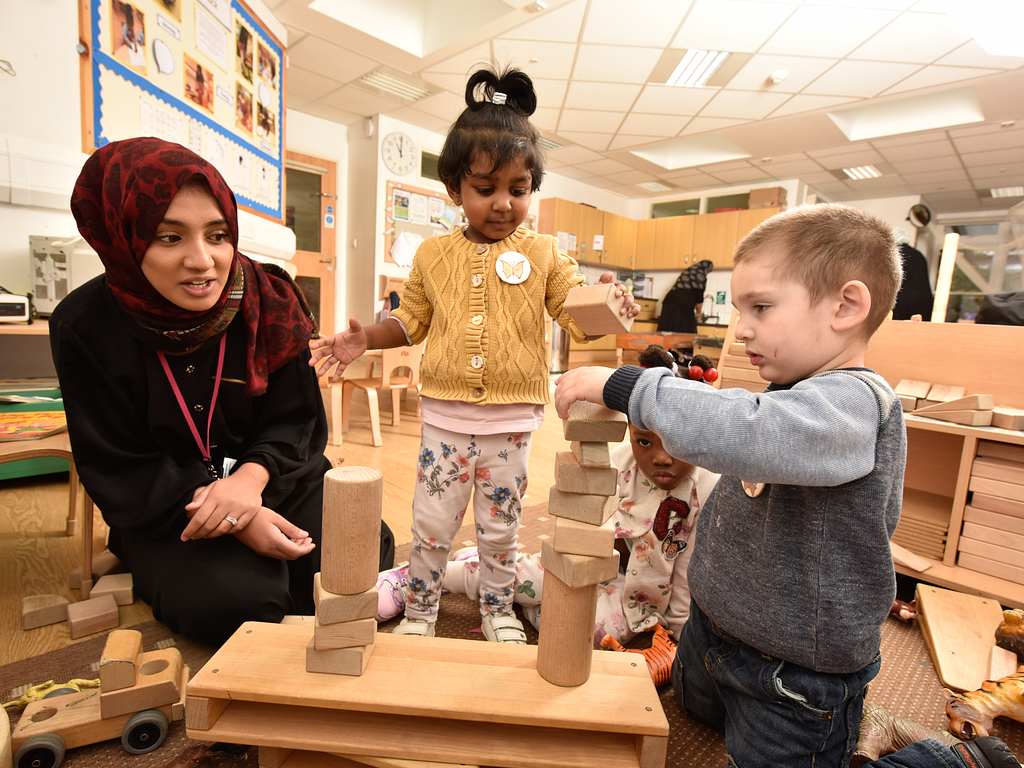Supporting children to become better communicators is one of the most powerful things we do as early years educators. Oral language skills are fundamental to children’s learning, thinking and emotional wellbeing. Children who can communicate well can make friends, play, resolve conflicts and tell us how they are feeling.
The evidence tells us that we should prioritise the development of children’s communication and language through socially-meaningful interactions. Children thrive on conversation and discussion with people they have a strong relationship with, focused on things they want to talk about.
As James Law and his colleagues found, these types of interactions ‘optimise early development’ (Law et al, 2017).
High quality interactions often look effortless, but they are not easy to do well. So, to support early years professionals, we have distilled the evidence into the ShREC approach. This provides us with a simple and memorable set of specific, evidence-informed strategies which we can embed into everyday practice. We can use these strategies with every child, every day.
- Sh: Share attention – be at the child’s level. Pay close attention to what they are focused on.
- R: Respond – follow the child’s lead. Respond to their non-verbal and verbal communication. You could make a brief comment on what they can see, hear or feel.
- E: Expand – repeat what the child says and build on it by adding more words to turn it into a sentence.
- C: Conversation – have extended back and forth interactions. Give children time to listen, process and reply.
These strategies encourage us to become more responsive and attuned to children. They encourage children’s active participation in meaningful, stimulating, and linguistically rich back and forth conversations.
Watch the video of ShREC in action below.
Read more about the ShREC approach here.

Blog
EEF blog: The ShREC approach – 4 evidence-informed strategies to promote high quality interactions with young children
